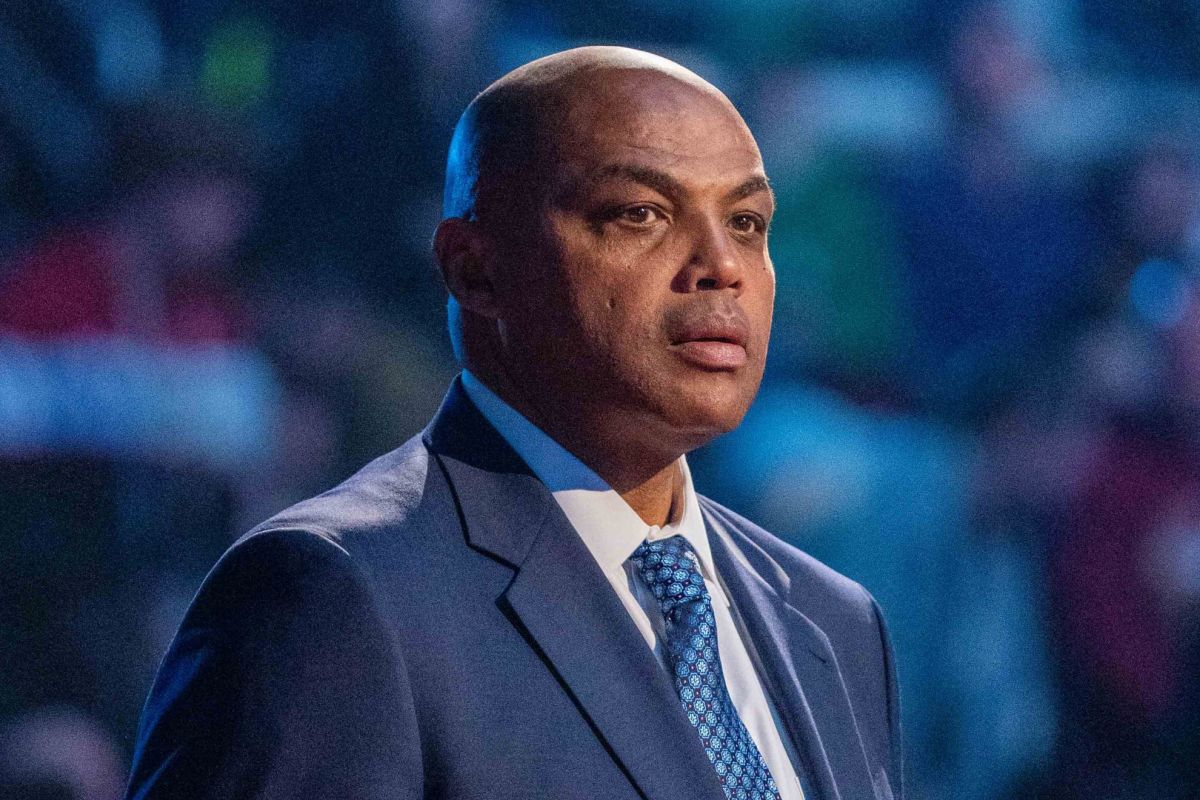Charles Barkley, one of the most outspoken and charismatic figures in the world of sports broadcasting, has always been known for his bold opinions and candid remarks. His unique blend of humor and sincerity has made him a beloved personality in the NBA world. Recently, Barkley stirred up the basketball community with a major question regarding the legacy of one of the game’s most iconic players, Stephen Curry. Curry, whose name is synonymous with the revolution of three-point shooting, has undoubtedly changed the landscape of modern basketball. However, Barkley’s query brought a new perspective to the conversation: Has Stephen Curry truly earned his place among the greatest players in NBA history, or has the NBA evolved in a way that enhances Curry’s legacy without him being as dominant as other all-time greats?
Barkley’s question sent shockwaves through social media, sports talk shows, and NBA fan bases alike. To understand the full scope of Barkley’s comment, we must first recognize the context of his career and his previous stance on matters of legacy and greatness. Barkley, a Hall of Famer in his own right, was a dominant force in the 1990s and an MVP winner in 1993. His view of greatness, shaped by his own experiences in the league, often includes a sense of physical dominance, versatility, and a level of success that transcends one aspect of the game. Barkley’s doubts about Curry’s place among the all-time greats have sparked a much-needed debate about what truly defines greatness in the NBA.
Stephen Curry, often regarded as the greatest shooter in NBA history, has undoubtedly revolutionized the game. The Golden State Warriors’ superstar has changed the way basketball is played, leading a three-point shooting revolution that has altered offensive schemes across the league. His combination of skill, shooting range, and incredible ball-handling has made him an unstoppable offensive force. Curry has won multiple MVP awards, led his team to several championships, and captured numerous individual accolades. However, Barkley’s question casts a shadow on Curry’s career achievements by suggesting that his success may be partially due to the evolution of the game, rather than his own dominant physicality and impact on every facet of play.
Barkley’s query is not an attack on Curry’s abilities or accomplishments; rather, it is a thoughtful examination of how the game’s evolution has changed the standards by which we judge greatness. Barkley’s era of basketball was defined by powerful big men, tough defenses, and a style of play that emphasized physicality. Players like Michael Jordan, Shaquille O’Neal, and Kobe Bryant dominated their eras with a combination of skill, athleticism, and physical presence. The NBA of the 1990s and early 2000s was a much more physical league, and players were expected to dominate in every area of the game: scoring, rebounding, defense, and leadership.
Curry, on the other hand, operates in a completely different NBA landscape. The game has shifted dramatically in favor of perimeter shooting, and the emphasis on three-pointers has skyrocketed. In this new style of play, Curry’s particular skill set has made him one of the most dangerous players to ever step on the court. Yet, Barkley’s question challenges whether Curry’s greatness is fully comparable to that of the giants of the past who dominated all aspects of the game with their size, strength, and multifaceted skills.
Another important point in Barkley’s question is the matter of team success. Curry has been part of an incredibly successful Warriors team, winning multiple championships with the help of a great supporting cast, including Klay Thompson, Draymond Green, and head coach Steve Kerr. While Curry’s individual brilliance has undeniably played a major role in Golden State’s success, Barkley’s question touches on the idea that perhaps a player’s greatness is better measured by their individual impact rather than their team success.
In Barkley’s view, some of the greatest players in history were able to dominate even without the luxury of a superteam. Michael Jordan, for example, won championships with the Chicago Bulls during an era when the NBA was full of other strong teams. LeBron James has led his teams to success in multiple different environments, demonstrating his ability to carry franchises on his back. Barkley’s question challenges whether Curry, with the benefit of the Warriors’ stacked roster, has truly demonstrated the same level of dominance. Has he been able to elevate his team to success in a way that other greats did in more competitive and evenly matched situations?
While it’s impossible to discount Curry’s numerous individual achievements, his leadership on the court, and his transformation of the game itself, Barkley’s question forces us to reflect on what qualities make a player truly great. The debate about Curry’s place in the NBA hierarchy is not just about his shooting prowess or his impressive statistics. It’s about the impact that his style of play has had on the game and whether it has changed the nature of the competition itself.
Furthermore, Barkley’s remarks highlight the shifting expectations for NBA players. In an era of advanced analytics and an ever-growing focus on three-point shooting, players like Curry have become more valuable to their teams due to their ability to stretch the floor and create space. Yet, the question remains: is a player’s greatness determined by their adaptability to the changing dynamics of the game, or by their ability to dominate in an era of their own making?
Curry’s rise to prominence has coincided with a shift in the game’s rules and strategies. The increased emphasis on the three-point line and the speed of play has created a more open and dynamic offensive environment. Curry’s ability to shoot from nearly anywhere on the court has given him a unique advantage in this new style of play. But there are still those who argue that greatness should be measured not just by adaptability, but by the sheer ability to impose your will on the game. Can a player like Curry, whose influence on the game is undeniable, truly be compared to the all-time greats who ruled an entirely different type of basketball?
For many, the answer is clear: Stephen Curry’s greatness cannot be questioned. His unique skill set, ability to lead his team to multiple championships, and the overall revolution he has brought to the game cement his place in the annals of NBA history. Curry has undoubtedly earned his place among the best to ever play the game. His influence extends far beyond his individual accolades. The way teams now structure their rosters and develop players has been shaped by the way Curry has redefined offensive basketball. His shooting ability has made him a game-changer, and his success has helped validate the idea that style of play can be just as important as traditional measures of dominance.
However, Barkley’s question provides an opportunity to have a deeper conversation about the evolving nature of the game and how we define greatness. As the NBA continues to grow and change, the way we assess the achievements of players will likely continue to evolve. Stephen Curry’s career will undoubtedly be remembered for his incredible impact on the game, but it’s worth questioning what makes him great in comparison to the legends of the past.
In the end, Barkley’s question is not an attack on Curry’s legacy, but a reflection of the complexities surrounding the definition of greatness in the modern NBA. As the game continues to evolve, the debate about what truly defines an all-time great will only grow more intricate. Curry, with his revolutionary style of play, has already left an indelible mark on the history of basketball. The true measure of his greatness, however, may not be fully understood until we see how the game continues to evolve in the years to come.



